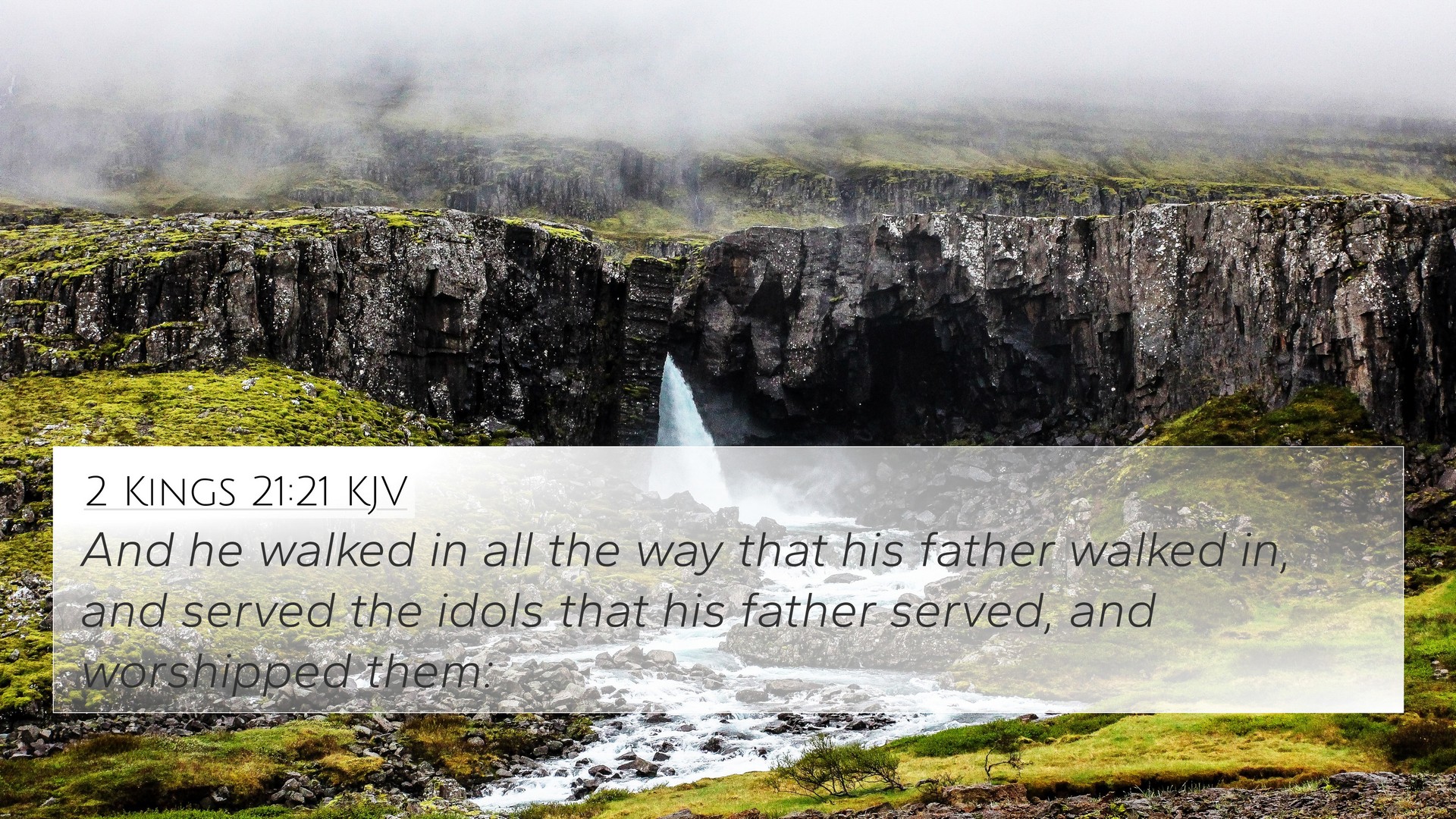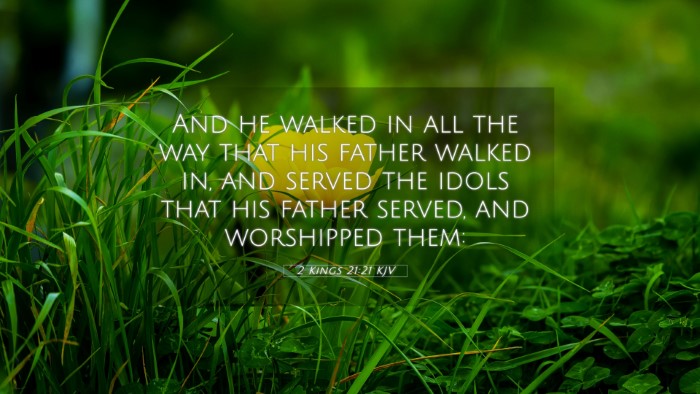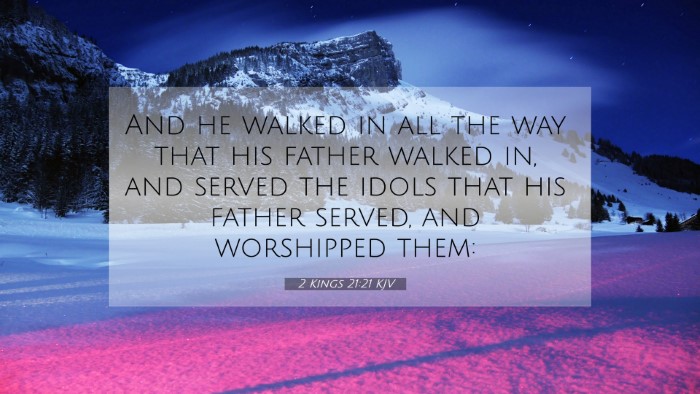Understanding 2 Kings 21:21
Verse Context: 2 Kings 21:21 states, "And he walked in all the way that his father walked in, and served the idols that his father served, and worshipped them." This verse gives insight into the actions of King Amon of Judah, emphasizing his continuation in the idolatrous practices initiated by his father, Manasseh.
Summary of Biblical Insights
This verse serves as a critical point in the historical narrative of the kings of Judah, illustrating the generational sin that influenced the nation. Amon’s actions are a direct reflection of the poor spiritual legacy left by Manasseh, reinforcing the theme of familial influence on faith practices.
Thematic Analysis
The narrative showcases several themes:
- Generational Sin: Amon’s decision to follow in his father's idolatrous ways indicates how sin can perpetuate within a family.
- Idolatry: The worship of false gods is a consistent rebuke throughout Kings, setting a contrast against the worship of Yahweh.
- Leadership Influence: Amon’s reign signifies how the character of a leader can lead people away from covenant faithfulness.
Biblical Cross References
This verse is connected to several other verses in Scripture that illuminate themes of idolatry and generational sin:
- 1 Kings 15:3: "And he walked in all the sins of his father, which he had done before him." - A parallel reflection on the influence of previous kings on their successors.
- 2 Kings 21:16: "Moreover Manasseh shed innocent blood very much, till he had filled Jerusalem from one end to another..." - Highlights the severe consequences of Amon's father, Manasseh’s, actions.
- Exodus 20:5: "You shall not bow down to them or serve them, for I the LORD your God am a jealous God, punishing the children for the sin of the parents..." - God’s warning on the repercussions of idolatry across generations.
- 2 Chronicles 33:23: "And humbled not himself before the LORD, as Manasseh his father had humbled himself; but Amon trespassed more and more." - A direct mention of Amon's refusal to repent, showcasing his stubbornness in sin.
- 2 Kings 21:20: "And he did that which was evil in the sight of the LORD, as his father Manasseh did." - Emphasizes Amon's choice to follow in evil ways.
- Galatians 6:7: "Do not be deceived: God cannot be mocked. A man reaps what he sows." - This encapsulates the inevitable consequences of Amon's actions rooted in his father's sins.
- Ezekiel 18:30: "Therefore I will judge you, O house of Israel, every one according to his ways, says the Lord GOD." - God's invitation to individual accountability, even amidst generational sins.
Comparative Bible Verse Analysis
In looking at the connections between these verses, we can see how the behavior of one generation influences the next. The detailed cross-reference between the actions of Amon and Manasseh underscores a critical understanding in Scripture—actions have consequences that often echo through time, impacting subsequent leaders and their people.
In-depth Interpretation
Through Amon's story, we are presented with dire warnings about the dangers of neglecting one's faith and the significance of adhering to God’s commandments. Amon chose to embrace the idolatries of his father rather than follow the way of the Lord, which resulted in a grim legacy.
Tools for Bible Cross-Referencing
For those interested in studying the Bible more deeply, various tools are available for cross-referencing and analysis:
- Bible Concordance: Assists in locating verses by specific words or themes.
- Bible Cross-Reference Guide: Offers a structured way to find related verses.
- Bible Chain References: Provides a network of linked verses, guiding readers through thematic paths in the Bible.
- Comprehensive Bible Cross-Reference Materials: Such resources help deepen understanding and foster thematic exploration across both the Old and New Testaments.
Concluding Thoughts
2 Kings 21:21 serves as a vital reminder of how the decisions made by one generation can profoundly affect another. Through a careful examination of this and related Scriptures, one can uncover deep truths about human nature, sin, and the importance of faithful leadership. As you explore the connections between verses, consider this an invitation to reflect on the themes of obedience, idolatry, and the call to worship the one true God.


